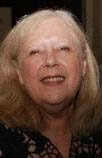My daughters read it and were profoundly moved, but until recently, I’d never read Elie Wiesel’s memoir Night. When the book group I visit selected it, I confess I was a little unenthusiastic. Not because I thought it an unworthy book, but because I’d already read so much about World War II and Nazi Germany—nonfiction, fiction, and poetry.
So I picked up the slim little volume and read it last night. As I began, I wondered if it would affect me as sharply as Anne Frank’s diary. As I continued to read, I realized that although both books deal with tragedy, Frank’s diary, kept while she and her family were in hiding, pulls at the reader because her perspective is so innocent.
Wiesel’s memoir, however, recounts the direct experience of living in a concentration camp, of being subjected to forced labor and savage conditions. His innocence dissolved as soon as he was en route to the camps, and even earlier, once his family was moved from their home into the temporary ghetto in Sighet. The only innocence in Wiesel, narrating as a teenager, is in the brief pages that precede the deportation of his Jewish family, friends and neighbors.
Not long ago, I read news stories about Iran’s president Mahmoud Ahmadinejad, who called the Holocaust a “myth”. As I read Wiesel’s book, I wondered at an intellect that could deny the Holocaust. After all, there’s a daunting paper trail—one archive, according to an article in The Telegraph comprises over 50 million documents and includes records for over 17 million people.
One element that makes Wiesel’s memoir so disturbing is his narrative style. He recounts his experiences in an almost clinical tone, with occasional spurts of metaphor. He speaks in sparse prose passages of seeing prisoners hanged, of watching a man crawling to a soup cauldron die, by accident because of Allied bombing. He applies the same tone to thinking about the possibility of having his own leg amputated, and to caring for his dying father.
The most powerful image, in my opinion, is at the end of the book. Wiesel’s camp has been freed, and he’s in the hospital after a case of food poisoning. He gets up to go look in the mirror, something he hadn’t done since leaving his home town to go to the camps. “From the depths of the mirror,” he writes, “a corpse gazed back at me. The look in his eyes, as they stared into mine, has never left me.”
Reading Wiesel's memoir is like looking into the mirror alongside the author. And books like this never leave us either. Perhaps we might gift a selection of nonfiction books like Night and The Diary of Anne Frank, and maybe a novel like Sophie’s Choice to Iran’s top government leader. Are such books readily available, I wonder, in that country?
After all, Iran doesn’t exactly embrace freedom of speech. Unless of course you’re the president.
Recommended link of the week:Chicana Poetics
Interesting blog, but a must-read is the poem “Brandy down our throats like fire”. Just an exceptional work.
Suggested reading:
Creative Writer US; great advice for aspiring writers in my Writers at Work feature on W. Thomas Smith, Jr.
Tuesday, May 16, 2006
Subscribe to:
Post Comments (Atom)

No comments:
Post a Comment